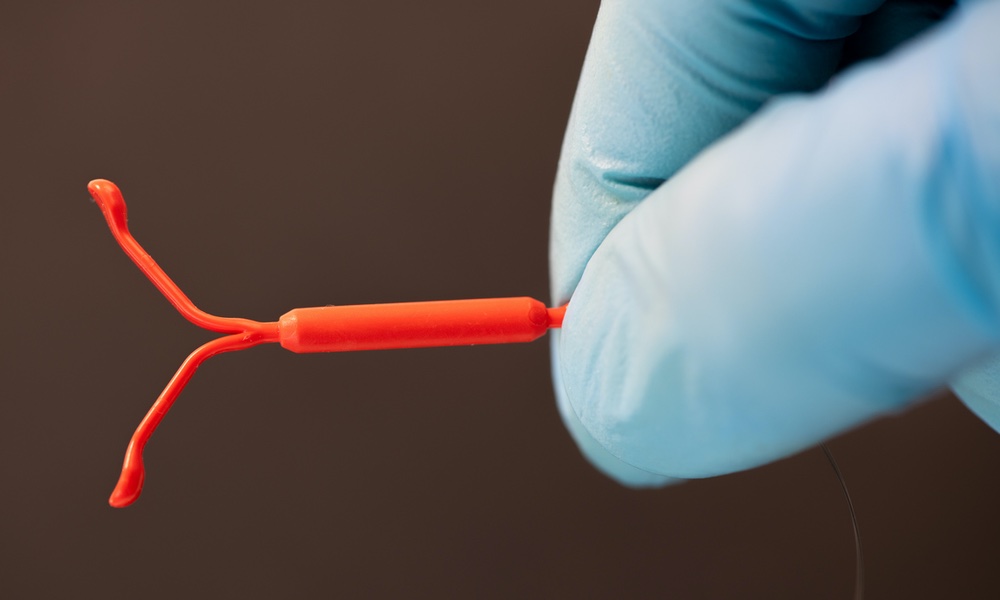A popular long-lasting reversible birth control — the hormonal IUD — also appears to be a highly effective form of emergency contraception (EC). Intrauterine devices are tiny, T-shaped implants that sit inside the uterus, preventing pregnancy.
When inserted up to five days after unprotected intercourse, copper IUDs are the most effective form of emergency contraception. They tend to be underused by people seeking emergency birth control because IUDs require a timely doctor’s visit to be placed, whereas the less-effective morning after pill is available over-the-counter in many pharmacies.
Hormonal IUDs deliver a continuous low dose of hormones to the pelvic organs which prevents ovulation — the release of an egg cell from the ovary. Copper IUDs, on the other hand, create an unsuitable environment for sperm that prevents fertilization and pregnancy without using any hormones. Both types of IUDs — hormonal and copper — are over 99 percent effective at preventing pregnancy when used as long-acting reversible contraception.Ninety-one percent of study participants who received a hormonal IUD had a negative pregnancy test one month after placement.
Participants were recruited from six clinics. The women had come in seeking emergency contraception following unprotected intercourse. Of those who agreed to the placement of an IUD for the study, half received a copper IUD, while the other half received a hormonal IUD. Neither group knew which kind of IUD they had been given.
The hormonal IUD performed almost as well as the copper: 91 percent of study participants who received a hormonal IUD had a negative pregnancy test one month after placement. Among the copper IUD group, 93% of participants had a negative test after one month.
While the hormonal IUD very slightly underperformed the copper IUD in the study, researchers are still confident that these findings make a strong case for the hormonal IUD as a form of emergency contraception. Both types of IUD offered similar levels of safety.
The study offers support for the idea that hormonal IUDs should be added to the range of options commonly offered to people seeking emergency birth control options As researcher, Lori Gowron, a member of of the University of Utah’s Obstetrics and Gynecology department, said in a statement, they will “give people more options for both emergency and ongoing contraception and decrease barriers to same-day IUD placement when patients want one.”
For those desiring to prevent unplanned pregnancy, both hormonal and copper IUDs offer top-notch, reversible protection. Your doctor or other healthcare provider can help you decide what type of IUD may be right for you based on your health history and preferences.
The study is published in the New England Journal of Medicine.





